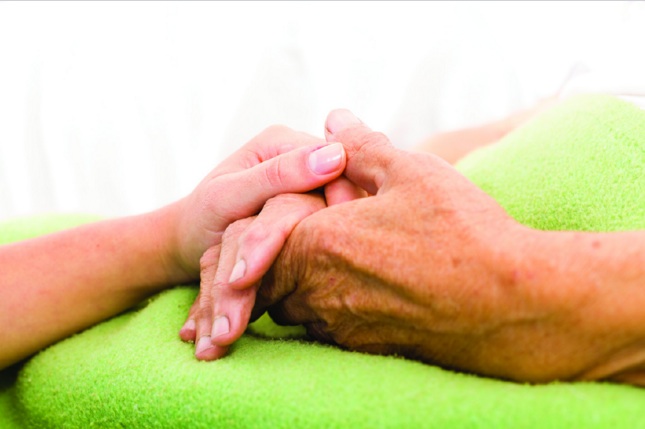
by Patti Ellis McMurry, Vice President of Access, Hospice Cleveland County
The term ‘hospice’ originally meant a place of rest for weary travelers. Today, Hospice is a philosophy of end-of-life care that focuses on pain control and symptom management rather than cure. Cicely Saunders began the work of hospice care in England and the philosophy quickly spread to the United States in the 1970s.
Hospice clinical staff works with patients and families to provide comfort and preserve dignity in the face of terminal illness. Hospice care is family-centered — it includes the patient and the family in making decisions and is available 24 hours a day, 7 days a week. A great emphasis is placed on the psychological needs of the patient and family members as they come to terms with dying.
Care is usually given in the patient’s home; however, care can be given to patients in hospitals, nursing homes, assisted living facilities, and in private hospice facilities. Hospice facilities provide a home-like environment for hospice patients who cannot remain at home and ensure that patients experience the dignity and good quality of life that every individual deserves at the end of life’s journey.
Hospice care is available when an illness is no longer helped by curative treatment and life expectancy is approximately 6 months or less, if the illness runs its usual course. Hospice provides palliative care, which is treatment to help relieve disease-related symptoms, not cure the disease; its main purpose is to improve quality of life. The patient, family, and doctor decide together when hospice care should begin.
Hospice accepts patients of all ages and with any life-limiting illness, such as cancer, emphysema, renal and heart diseases, and AIDS. Referrals may be made by the patient, family member, physician, minister, friend –anyone who cares. A concern of hospice providers is knowing that there are those who need hospice services and do not know how to access them.
Living life to its fullest is a focus in hospice care. Hospice is where ‘the little things don’t mean much, they can mean everything.” Unlike some agencies, hospice services usually begin within 24 hours of eligibility. Hospice is im-portant because it provides many benefits that aren’t possible in a traditional healthcare setting. Through hospice, the family is directly involved in making decisions and in caring for a person they love and hospice enables people with life-limiting illnesses to make decisions about how and where they want to spend the rest of their lives.
One concern is that hospice care is often not started soon enough. Sometimes the doctor, patient, or family member will resist hospice because he or she thinks it means “giving up”, or that there’s no hope. If a patient improves with hospice services, they can be discharged. Readmission to hospice care can be later, if needed. The hope that hospice brings is the hope of a quality life, making the best of each day during the final stages of advanced illness. Hospice treats the whole person. A life-limiting illness can cause many reactions, including pain and discomfort, fear and loneliness, concern about family and friends, and anxiety about what lies ahead. Clinical staff members are experts in pain control and symptom management.
From the moment the admission nurse schedules a visit, a feeling of comfort begins. Knowing compassionate, highly skilled, and dedicated health professionals are available eases so much of the stress, fear, and anguish within a family. The primary goal of hospice care is to meet all of the patient’s needs – physical, emotional, social, and spiritual – as well as the needs of the family. The patient’s Hospice team consists of professional staff and lay volunteers, and includes the physician, nurse, social worker, chaplain, aide, and grief counselor. In addition, there are nurses and support staff on-call round the clock.
Funding comes through Medicare, Medicaid, private insurance reimbursements, memorials, donations, United Way, memberships, and fundraisers. Staff visits, oxygen, in-home lab work, inpatient acute care, and all medications, supplies, and equipment pertaining to the illness are paid for 100%. This saves patients and family members a great deal of money and anxiety.
It has been said that the compassion of a community can be measured by the way it cares for those who are vulnerable. At Hospice Cleveland County, we feel that is best shown by the peace we provide. Peace . . . It does not mean to be in a place where there is no noise, trouble, or hard work. It means to be in the midst of those things and still be calm in your heart



